President Putin: The man who changed Russia's destiny
Russian President Vladimir Putin's influence has always had global appeal. Observers have even called the Russian President the "new boss" in the Middle East.
Increasing global influence
Last week, in meetings with the leaders of Syria, Türkiye and Iran in Sochi, President Vladimir Putin asserted his leading role in pushing for diplomacy to end the Syrian conflict with support from Turkey and Iran.
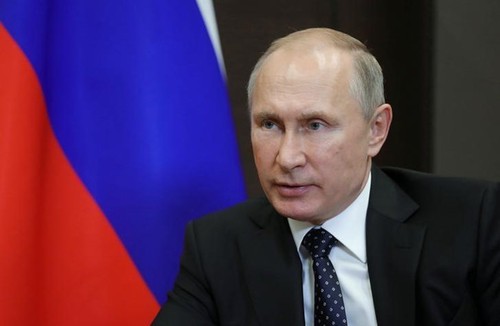 |
| Russian President Vladimir Putin. Photo: Reuters |
Sochi Conferencewithout the participation of representatives from the United States and the European Union. And while his main card is in the Middle East, Mr. Putin has continued to expand his influence around the region. In Europe, the Russian president has also moved to annex Crimea and support separatists in the Donbass region. In Asia, Russia has continued to develop close ties with China. In the United States, allegations of Russian interference in the 2016 election have somewhat weakened relations between Washington and Moscow.
However, according to Reuters, Mr. Putin's successes cannot avoid failures.
On the Ukraine issue, Russia has always wanted to dominate its southern neighbor, and Putin has shown no desire to completely leave Russia out of the orbit and join the West. After Russia annexed Crimea, the Kremlin hoped to unite the parties involved in order to retake the entire southern and eastern half of Ukraine. Since the Ukrainian army only has about 6,000 soldiers, Putin’s dream has been to increase the influence of “a new Russia.”
Unfortunately for President Putin, the plan did not work out as expected. While Ukraine may be culturally and linguistically divided by the convergence of Ukrainian-speaking, Western-dominated, pro-Russian and Russian-speaking eastern regions, Putin’s influence has helped Ukraine foster a national identity.
Military battalions along with volunteers have supported the army to defeat the Russian-backed separatists. The West including the European Union EU and NATO also jumped into the war to counter Russia's expansionist ambitions.
The Kremlin may hope that things can turn around, with pro-Russian leaders like former President Viktor Yanukovych returning to power and bringing with them high hopes. The annexation of Crimea and the war in eastern Ukraine turned millions of pro-Russian voters against NATO and the EU, but brought Ukraine closer to the West. Putin may have Crimea, but he has effectively lost the rest of Ukraine.
The Middle East is the most fertile land
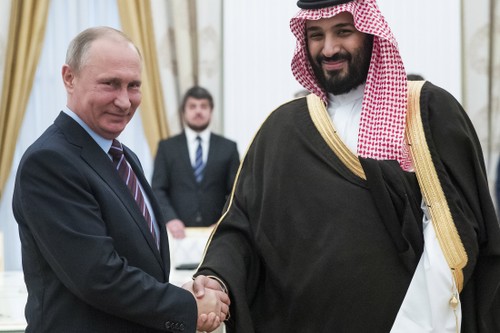 |
| Russia's influence, and more specifically President Putin's prestige, is no longer confined to the post-Soviet space. Photo: Oil Price. |
Putin’s intervention in the US election has also not gone as planned. The Kremlin hoped that influence in the US election would bring a more friendly policy towards Russia. Instead, it has not gone as planned. Putin’s secret proposal in April aimed to reset Russia-US relations and promote cooperation to jointly tackle global issues from Afghanistan to North Korea, including cybersecurity.
In August, Congress passed new economic sanctions against Russia while continuing to block President Trump from easing sanctions on Moscow. Observers say Putin had hoped that Trump’s election would weaken NATO, but Trump has reaffirmed that Washington wants to protect its NATO allies. Trump has continued to deploy US troops in the Baltic Sea while sending additional troops to the Russian and Polish borders.
While the Kremlin still hopes that Mr. Trump can continue to improve relations with Moscow, officials within the US have always denied this. Members of President Trump's cabinet, including Secretary of Defense James Mattis, Director of National Intelligence Mike Pompeo, US Ambassador to the United Nations Nikki Haleu and National Security Adviser HR McMaster, still have a somewhat harsh view of Russia, Reuters commented.
This will somewhat hinder President Trump’s efforts to mend US-Russia relations. More importantly, although President Trump wants to mend relations, his close advisers remain skeptical about the allegations of Russian intelligence involvement in the US election and its negative impact on Washington politics. In fact, investigations into Russian influence in US elections have repeatedly been a clue to Moscow’s disadvantage.
In addition, President Putin has recently established close relations with China. This puts the US at a disadvantage.
Military cooperation between Moscow and Beijing has also improved somewhat. Joint military exercises between the two countries have been steadily increasing. Even Moscow’s willingness to sell its most advanced weapons to Beijing could undermine Russia’s long-term geopolitical position.
Clearly, Putin may be delivering a lot of political success to Russia. Because of his diplomatic achievements in Syria, other Middle Eastern countries also support Russia. Israeli Prime Minister Benjamin Netanyahu has repeatedly visited Russia and met with President Putin many times with the hope that Russia will respect Israel's interests in Syria. Observers are considering the historical development, King Salman bin Abdulaziz also recently visited Moscow. The two countries have signed an agreement to purchase the S-400 surface-to-air missile system.
According to experts, President Putin continues to have a key influence in the role of intermediary in the Middle East but is "considered a slim opportunity" in other countries. The Middle East is probably still the "fertile" land that brings the most benefits to Russia and President Putin, Reuters commented.
According to Kienthuc.net.vn
| RELATED NEWS |
|---|


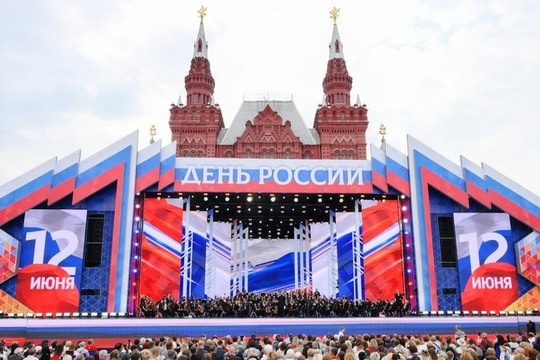
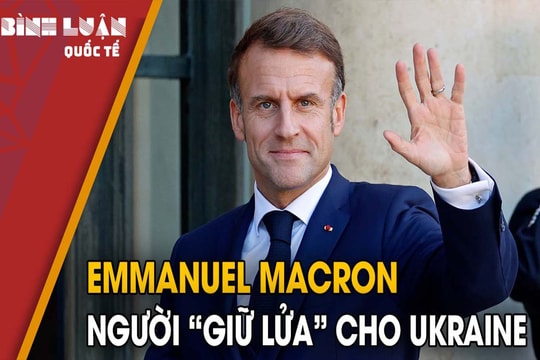

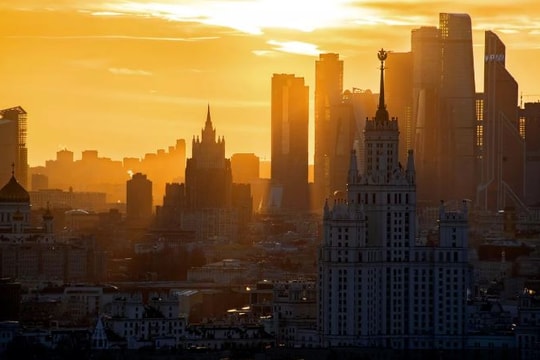
.jpg)

